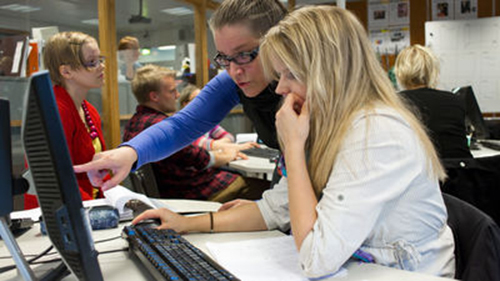
Bármely ország, hogy versenyképesek maradjanak a globális nevelés, it is important that its thought leaders continue to evaluate their system’s approach to learning. Leading education systems such as Finland are doing this. Despite shorter schools days, less homework and fewer standardized tests, Finnish students have maintained an exceptional track record in PISA tests over the years, topping the world charts in Math, Tudomány és Reading. Így, what are some of the secrets to their success, and perhaps more importantly, what are some of the innovative learning concepts they support moving forward? I had the opportunity to speak with Krista Kiuru, Finn oktatási miniszter és a tudomány, Peter Vesterbacka and Sanna Lukander of Rovio Entertainment, DR. Jari Multisilta, Director of the Cicero Learning Network at the University of Helsinki, and Ulla Engestrom, CEO of ThingLink.
Krista, in Finland you face the challenge of an increasingly diverse student population. What have you learned from other leading education systems that you believe can help you address this?
All systems have their own strengths, corresponding to their own history and culture. Equity and equality have been the cornerstones of the Finnish system, and we are struggling all the time to ensure equal opportunities for every single child. Growing diversity is definitely a challenge but it could be enriching and a positive factor. The US is a good example of how diversity can be turned into a positive force. I have been impressed by how you support pupils’ self-esteem and identity.
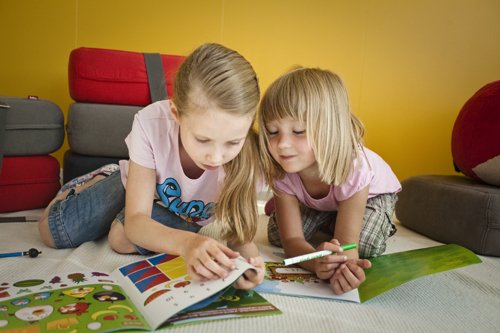
Technology continues to change our world. Some employers argue that graduates don’t have the current skills needed and point to the need to reform education. Do you agree?
The world is indeed changing rapidly in many ways. Technology is naturally one factor but there are other skills needed as well. Students will need ‘learning to learn’ szakértelem, abilities to access and manage vast amounts of information, and a positive attitude towards learning, just to mention a few examples. It is quite likely that the young people of today will change their careers several times in their lifetime, and the education system must support that; basic education must give a solid basis for future life. Amellett, hogy ez a, constant dialogue with employers and other stakeholders in the society is needed. Schools cannot isolate themselves and they cannot live in the past.
Technology claims to be able to individualize student learning. Is that seen by Finnish educators as a positive opportunity? How do Finnish teachers (renowned for their pedagogical criteria) feel about this?
I never underestimate the importance of technology but it is good to remember that technology is just a tool – the content is what matters at the end of the day. I am pretty sure that Finnish teachers share this view, túl. Azonban, we have to understand and accept that school is – and it should be – part of the rapidly digitalizing society. Ma’ s school cannot be an airplane in which you have to ‘switch off all electronic devices’ at the door and come back to your normal life only when the school day is over. This does not work.
Ezen túlmenően, technology can make learning more fun. Educational games, especially those developed together with teacher trainers and pedagogical research, could be used more in teaching. Valójában, they could especially increase boys’ motivation in learning.
Sanna and Peter, can you briefly describe the Angry Birds Playground learning concept?
Angry Birds Playground combines the best of two great brands: Finnish education and Angry Birds. Ez egy óvodai program, amely el tudja indítani bárhol.
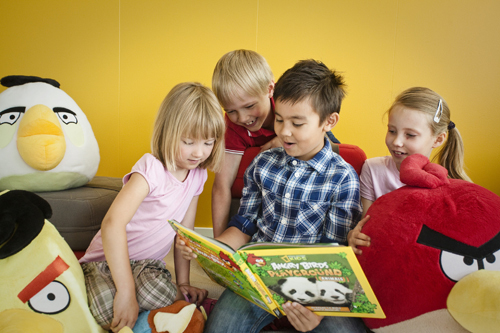
Ujj, mik voltak a legfontosabb megállapításokat, a Angry Birds kutatás Finnországban és Szingapúrban?
Az eredmények azt mutatták, hogy a gyerekek mind Finnországban és Szingapúrban érezte, hogy a tanulási tevékenységek Angry Birds Playground anyagok nagyon szórakoztató. Azt is vissza akart térni, hogy ezt a tevékenységet újra.
Some of the children connected fun to new kinds of activities, which they hadn’t done before at home or in kindergarten or school. Például, the mobile math game was described as fun since it was a completely new kind of game or activity. Ezen túlmenően, many children connected joy to the possibility to move and run while playing the game. Children thought it was fun to take a race against time by running in the yard or gym and looking for the Angry Birds characters that had to be caught with a mobile phone. Is, some activities with the game cards and particular assignments in activity books were considered fun.
According to our study, children were also highly engaged in different activities in the playful learning environment. The engagement observed was focused working and concentration when doing assignments in activity books, and energized working with music instruments and playing physical games. Most of the teachers estimated that engagement with Angry Birds Playground was higher than in ordinary classroom activities. Some children found the Angry Birds materials too easy and therefore the engagement weakened towards the end of the test period.
Sanna and Peter: Fun tanulás is áll a tanítás a gyerekek 21. századi készségek, mint a kritikai gondolkodás, együttműködés, problémamegoldás, a kreativitás és a tárgyalás, amelyek mindegyike alapvető fontosságú lesz velük a jövőben. Hisszük gyerekek megtanulják ezt belül és kívül az osztályteremben. Időszakok játék és pihenőidőt, ugyanolyan fontosak a tanulásban az idő az osztályteremben.
Amikor a gyerekek jól érzik magukat, does it always translate into better learning outcomes?
Ujj: Abszolút? Nem. Tanulás, at its best, should be fun so that it helps children (and adults also) to engage in the learning activity. Learning is not necessarily easy. It takes time and effort to learn. Yet fun and joy can inspire learners to explore the learning materials. Ezen túlmenően, playfulness can improve learners’ imagination and creativity, and encourage practicing different skills.
Sanna and Peter, what are you doing with the Angry Birds products in China going forward?
Építünk az első Angry Birds Playground tantermek Sanghajban, Peking és Chengdu, mint beszélünk, és akkor lesz teljes mértékben működőképes elején a következő tanévben.
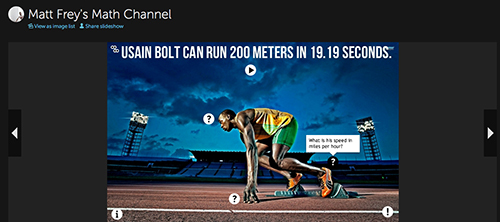
Ulla, lehet röviden leírni ThingLink?
Az az elképzelés, ThingLink nagyon egyszerű: ez egy ingyenes szolgáltatás, amely lehetővé teszi az online kiadók a hangjegyeket, linkek, zene vagy videó képek. Egy kép lesz önálló kiadói platform és egy új módja annak, hogy böngészhet az interneten.
Mikor felfedezni az amerikai tanárok segítségével a technológia?
Körülbelül egy évvel ezelőtt, Csapatunk egy érdekes megfigyelés (már több mint félmillió online kiadók beleértve az újságokat, folyóiratok, nonprofits): legaktívabb felhasználók nem kereskedelmi kiadókkal, de a tanárok és diákjaik, mostly from the United States. We started looking into the educational uses more closely. Teachers had quickly come up with tens of different ways of using interactive images in the classroom. Here are a few examples:
Arts – Garth Holman, Sunday school teacher from the University of Akron: https://www.thinglink.com/scene/358616795164180480
Tudomány – Teacher Ernie G. Monte on space and the moon: http://www.thinglink.com/scene/494395152622682112
Math – Matthew Frey, middle school math teacher from Chicago, creates interactive math assignments (and is now putting together his own mobile “Matt’s math book” with interactive images): http://www.thinglink.com/scene/495019783087980544
Why are teachers using the technology and what are your next steps?
Teachers are paving the way for a new format for educational publishing that is interactive image books. There are a number of reasons why I believe this is happening. Textbooks are expensive. Teachers need learning material which is accessible to mobile devices. Teachers also need tools to support multiple modes of learning and intelligence, and to foster participation and collaboration outside of the classroom. With more image archives and digital libraries open for educational use, anybody can become an educational publisher. ThingLink already has 7000 teachers who, together with their students, have started to change the way we look at images in education. We will continue to support them by partnering with large image archives, publishers, and research databases to create a free open archive of interactive imagebooks for all educators.
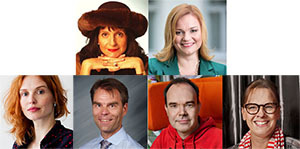
Fényképek köszönjük a csapat Finnországban (Riitta Supperi), Rovio Entertainment és ThingLink
A globális keresési Oktatási, velem és világszerte elismert szellemi vezetők többek között Sir Michael Barber (UK), DR. Michael blokk (Az US), DR. Leon Botstein (Az US), Professzor Clay Christensen (Az US), DR. Linda Darling-Hammond (Az US), DR. Madhav Chavan (India), Professzor Michael Fullan (Kanada), Professzor Howard Gardner (Az US), Professzor Andy Hargreaves (Az US), Professzor Yvonne Hellman (Hollandiában), Professzor Kristin Helstad (Norvégia), Jean Hendrickson (Az US), Professzor Rose Hipkins (Új-Zéland), Professzor Cornelia Hoogland (Kanada), Tisztelt Jeff Johnson (Kanada), Mrs. Chantal Kaufmann (Belgium), DR. Eija Kauppinen (Finnország), Államtitkár Tapio Kosunen (Finnország), Professzor Dominique Lafontaine (Belgium), Professor Hugh Lauder (UK), Professor Ben Levin (Kanada), Lord Ken Macdonald (UK), Professzor Barry McGaw (Ausztrália), Shiv Nadar (India), Professzor R. Natarajan (India), DR. PAK NG (Szingapúr), DR. Denise Pope (US), Sridhar Rajagopalan (India), DR. Diane Ravitch (Az US), Richard Wilson Riley (Az US), Sir Ken Robinson (UK), Professzor Pasi Sahlberg (Finnország), Professzor Manabu Sato (Japán), Andreas Schleicher (PISA, OECD), DR. Anthony Seldon (UK), DR. David Shaffer (Az US), DR. Kirsten Magával ragadó Are (Norvégia), Chancellor Stephen Spahn (Az US), Yves Theze (Lycee Francais-beli), Professor Charles Ungerleider (Kanada), Professzor Tony Wagner (Az US), Sir David Watson (UK), Professzor Dylan Wiliam (UK), DR. Mark Wormald (UK), Professzor Theo Wubbels (Hollandiában), Professzor Michael Young (UK), és professzor Minxuan Zhang (Kína) mivel azok feltárása a nagy kép oktatási kérdés, hogy minden nemzet ma szembesül. A Global Search Oktatási közösségi oldal
C. M. Rubin a szerző két legolvasottabb internetes sorozat, amely megkapta a 2011 Upton Sinclair díjat, “A Global Search for Education” és “Hogyan fogjuk olvasása?” Ő a szerzője a három bestseller könyv, Beleértve The Real Alice Csodaországban, és a kiadója CMRubinWorld.
Kövesse C. M. Rubin on Twitter: www.twitter.com/@cmrubinworld


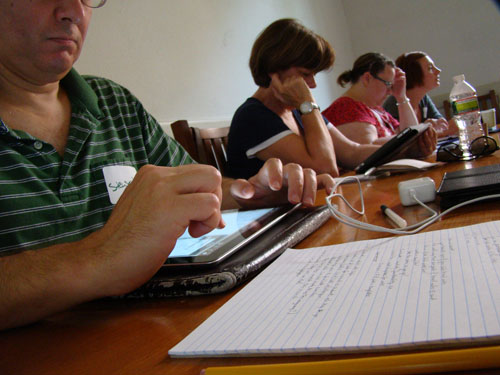
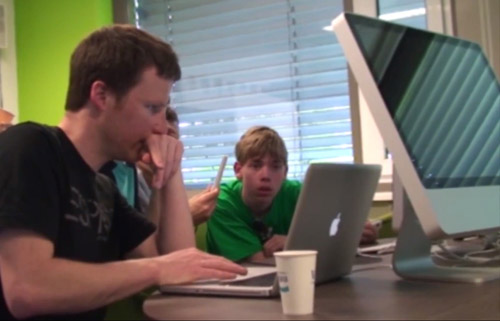
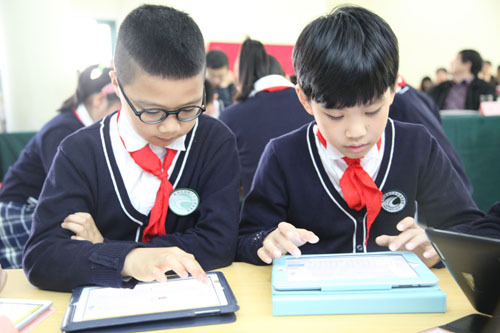
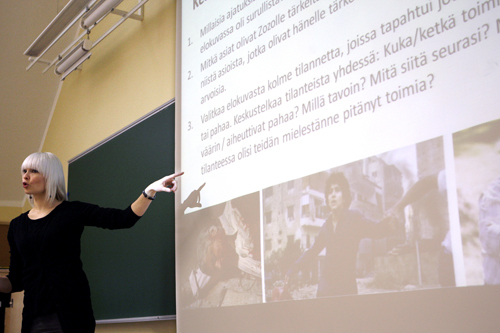
Legutóbbi hozzászólások